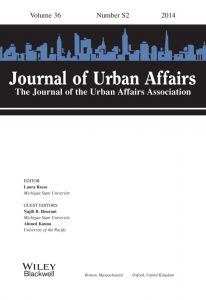I See the Target: Social Media and the Accountability of Military Technology
In a recent article, Brad Allenby and Carolyn Mattick argue that the ‘rule book’ of international warfare needs to be rewritten to include of the use of new technologies, in particular drones.[1] Drones sit in an ambiguous legal space because they are unmanned aerial vehicles that are often used to fly in a restricted airspace. Compounding this problem is that the use of drones is largely undocumented as a matter of national secrecy. Nevertheless another layer of technology, social media,...






1475-6781/asset/JSS.gif?v=1&s=377bb8e0c3d0fcf201f301ded7cf610142072c3e)
